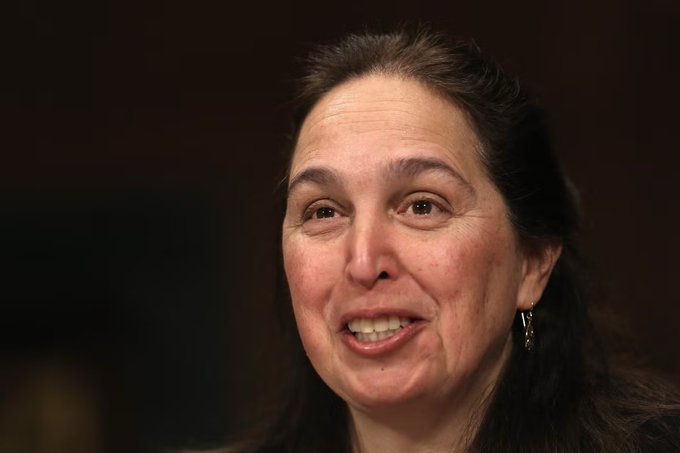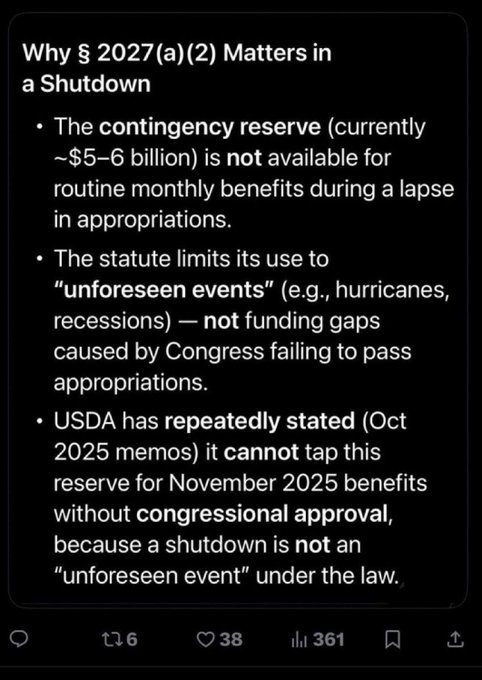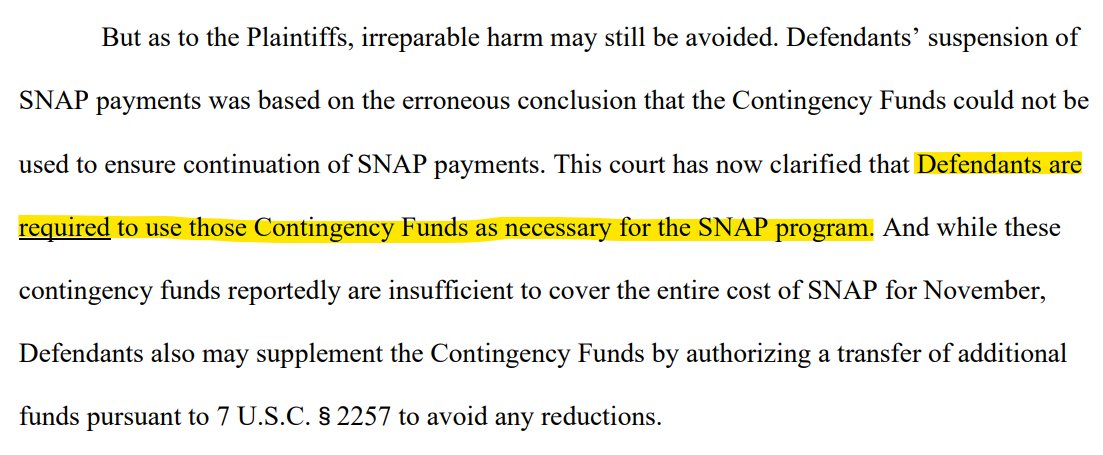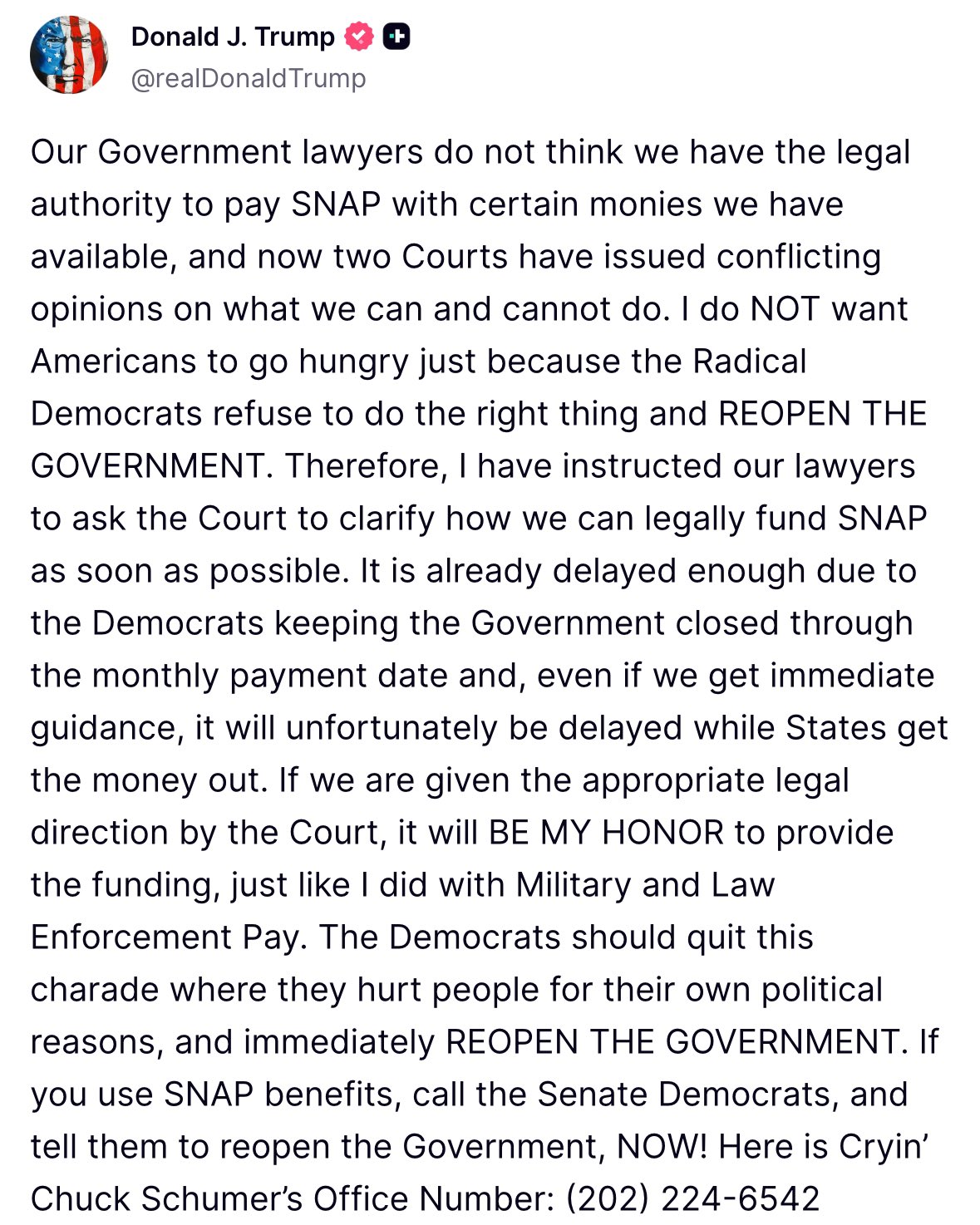And yesterday afternoon:
Diogenes said:
Here's where we are right now.
SNAP funding will not possibly be restored until Congress reconvenes on November 4, unless their captive Obamunist judge orders SNAP funding be restored immediately.
The midterms are imminent and they are hoping that by blaming Republicans for the losses, they can take control of Congress next January and either hamstring President Trump or impeach him.
SNAP's November issuance is officially paused starting the 1st, per USDA. The $6 billion contingency reserve is off-limits for regular benefits, and that's the flashpoint for the lawsuit from 25+ Democrat-led states and D.C., filed Tuesday in Massachusetts federal court.
The venue for the suit was carefully chosen. This is classic venue-shopping, and this one's got all the hallmarks.
Filing in Boston's U.S. District Court (District of Massachusetts) wasn't random; it's a masterclass in picking a friendly forum where the plaintiffs, led by AG Andrea Joy Campbell, hold home-field advantage.
With blue Massachusetts ground zero for the suit (hosting the rally, the pressers, and a governor who's been vocal about the "inhumane" fallout), it's no surprise they anchored it there under 28 U.S.C. § 1391(e) for suits against federal agencies.
The hook? Venue's proper in any district where a plaintiff resides, and with the Mass. AG as lead, that box is checked, while dodging circuits like the D.C. or Fifth, which might lean more skeptical of aggressive APA (
https://guides.library.cornell.edu/citing_us_gov_docs/lawsStatutes) challenges.
The assignment to Judge Indira Talwani? That's the cherry on top. An Obama appointee (confirmed in 2014), she's got a track record on administrative law that's Democrat-plaintiff-friendly.
In the District of Massachusetts, cases are randomly assigned, but the pool is heavily comprised of Democrat appointees. The odds of drawing a judge sympathetic to mandatory spending arguments? Much higher than in, say, the Northern District of Texas.
- Holding agencies to strict APA compliance
- Rejecting arbitrary delays in benefit programs
- Granting preliminary injunctions in emergency entitlement cases
Democrats are pushing hard for an emergency injunction by week's end, arguing the funds must flow under the Food and Nutrition Act—echoing precedents you likely navigated in past cycles. A favorable ruling from Judge Talwani could override the Congressional reconvene deadline and keep those EBT cards loaded, thereby avoiding any stigma they'd otherwise face for "starving the hungry".
The blue team is gunning for an emergency TRO by Friday (November 1), citing the Food and Nutrition Act's plain text on contingency funds for "program operations" during lapses, citing precedents like the 2019 shutdown where courts forced WIC continuity.
The complaint cites 2018–2019 shutdown cases where courts (including in D. Mass.) ordered USDA to tap contingency funds for SNAP and WIC. Talwani herself has ruled against federal agencies for procedural overreach, giving plaintiffs a credible path to a Temporary Restraining Order (TRO) by November 1.
Boston is a Democrat-dominated media hub. A ruling forcing USDA to release the $6 billion contingency reserve would dominate national headlines, framing the administration as defying law, while a loss would be buried by the Democrat's willing media shills.
The government will likely move to transfer to D.C. (arguing it’s the “real” seat of agency action), but courts rarely grant such motions when plaintiffs have a statutory hook and irreparable harm is imminent (42 million people losing food benefits qualifies).






